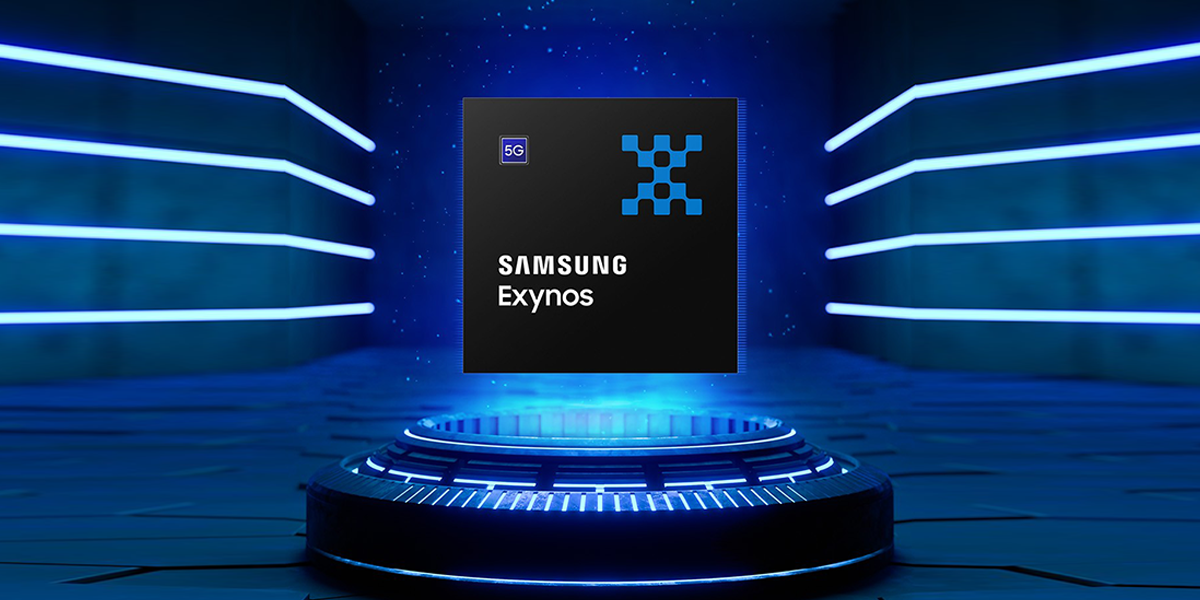Highlights
- Exynos 2500 to utilize advanced second-generation 3nm process.
- Features a Deca-core setup including a Cortex-X5 Prime core.
- Set to rival Snapdragon 8 Gen 4 and MediaTek Dimensity 9400.
- Builds on the success of the Exynos 2400, powering Galaxy S24 series.
Samsung has recently been making waves in the semiconductor industry with its Exynos 2400 application processor (AP), which has rivaled Qualcomm’s Snapdragon 8 Gen 3 in performance benchmarks.
Building on this success, Samsung is now poised to introduce the Exynos 2500, a chipset that could potentially redefine the standards for mobile processing power.
A Leap Forward with the Exynos 2500

The Exynos 2500, also known as Samsung’s “Dream chip,” is expected to be the first to utilise Samsung Foundry’s second-generation 3nm process.
This innovation incorporates Gate-all-around (GAA) transistors, which encase all four sides of the channel, thereby reducing current leaks and enhancing drive current.
This technology places Samsung Foundry ahead of TSMC, which plans to adopt GAA transistors in its forthcoming 2nm production.
Deca-Core Architecture

According to a leaked slide by @OreXda, the Exynos 2500 will feature a sophisticated Deca-core setup.
This includes one Cortex-X5 Prime core with speeds between 3.2 and 3.3GHz, three Cortex-A730 Performance cores at 2.3GHz-2.5GHz, two additional Cortex-A730 cores at a lower speed, and four Cortex-A520 Efficiency cores.
Snapdragon 8 Gen 4 and MediaTek Dimensity 9400

The Exynos 2500 will face stiff competition from Qualcomm’s Snapdragon 8 Gen 4, which employs Oryon cores and has shown impressive performance in gaming tests.
MediaTek’s Dimensity 9400 is another strong contender, featuring a combination of three Cortex-X5 and five Cortex Performance cores, notably omitting low-power efficiency cores.
It also appears that the Exynos 2400 has already set a high benchmark, powering the Galaxy S24 and S24+ in various global markets, excluding the U.S. and China.
Its performance has helped rehabilitate the reputation of the Exynos line, which previously faced criticism for overheating issues.
The Snapdragon 8 Gen 3 AP continues to power the Galaxy S24 Ultra globally and the S24 models in the U.S. and China.
Exynos 2500: A Game-Changer?

With the Exynos 2500, Samsung aims not only to solidify its position in the chipset market but also to lead the technological race.
The combination of advanced manufacturing processes and the innovative Deca-core design could set a new standard for mobile processors, offering a blend of power, efficiency, and thermal management.
FAQs
What makes the Samsung Exynos 2500 AP unique?
The Exynos 2500 AP stands out with its second-generation 3nm process and GAA transistor technology, promising enhanced efficiency and reduced current leaks compared to its predecessors.
How does the Exynos 2500 compare with other leading chipsets?
Samsung’s Exynos 2500 is positioned to compete with the Snapdragon 8 Gen 4 and MediaTek Dimensity 9400, offering advanced technology that could redefine chipset performance standards.
What are the specifications of the Exynos 2500 AP?
The Exynos 2500 is expected to feature a Deca-core architecture, including a high-speed Cortex-X5 Prime core, potentially leading to significant improvements in processing power and energy efficiency.
Which devices will use the Exynos 2500 AP?
While specific devices using the Exynos 2500 AP have not been confirmed, it is likely to be featured in upcoming premium smartphones, following the trend set by the Exynos 2400 in the Galaxy S24 series.
What is the significance of Samsung’s 3nm process in the Exynos 2500?
Samsung’s adoption of the 3nm process in the Exynos 2500 marks a significant technological advancement, providing an edge over competitors and setting new benchmarks in chipset manufacturing.
What are Exynos 2500 Specifications revealed from the Leaks ?
OreXda on X (formerly Twitter) has come up details about the Exynos 2500.
Yet to be officially announced the leaks give a sneak peek into what could be a significant leap in processing capabilities.
What are Samsung Exynos 2500 Specifications?
Exynos 2500 being built on a 3nm process node.
The core architecture often defines the processing might of a chipset. The Exynos 2500, as per the leaks, is expected to boast a deca-core CPU.
This includes an undisclosed ARM Cortex-X5 core, a powerhouse in its own right, along with multiple Cortex-A730 and Cortex-A520 cores.
Exynos 2500 lies the enigmatic Cortex-X5 core.
With clock speeds ranging from 3.3GHz to 3.2GHz, this Blackhawk core from ARM promises a significant boost in CPU performance.
The Exynos 2500 is anticipated to leverage Samsung Foundry’s second-generation 3nm node.
Among the crucial details highlighted in the leaks is the possibility of the Exynos 2500 being built on a 3nm process node.
This hints at a substantial reduction in transistor size, potentially leading to enhanced efficiency and performance.
Samsung’s claim of superiority over TSMC’s 3nm (N3B) technology.
ARM’s Blackhawk core, the Cortex-X5, is expected to be a game-changer for the Exynos 2500.
How does the Exynos 2400 SoC compare to Apple’s A17 Pro chip in the Galaxy S24 Series?
The Exynos 2400 SoC, featured in the upcoming Samsung Galaxy S24 Series, is rumored to surpass the Apple A17 Pro chip’s performance.
Developed in collaboration with AMD, the Exynos 2400’s GPU is expected to outperform the A17 Pro’s 6-core GPU, which already has a high AnTuTu graphics test score of over 590,000 points.
This advancement indicates a significant leap in Samsung’s chipset technology, particularly in GPU performance.
What are the implications of Samsung’s choice of the 4nm process for the Exynos 2400?
Samsung’s decision to utilize a 4nm process for the Exynos 2400, as opposed to the more advanced 3nm process, is a strategic move to balance performance with manufacturing yields.
This approach ensures higher efficiency and robust performance due to Samsung’s expertise in the 4nm technology.
The integration of FOWLP technology further indicates improved heat dissipation and chip durability.
What can consumers expect in terms of performance from the Galaxy S24 Series?
Samsung has revealed that the Exynos 2400 will offer a 70 percent increase in CPU performance and a 14.7 times faster AI processing speed compared to its predecessor, the Exynos 2200.
Also Read: Samsung Exynos 2400: The Rumoured Deca-core Revolution in Smartphone Processing
Also Read: Samsung Galaxy S24 Ultra’s Snapdragon 8 Gen 3 Reportedly Underperforms Compared to S24+ with Exynos
Also Read: Samsung Galaxy S24 Series Set to Outperform Apple’s A17 Pro With its Exynos 2400 SoC
